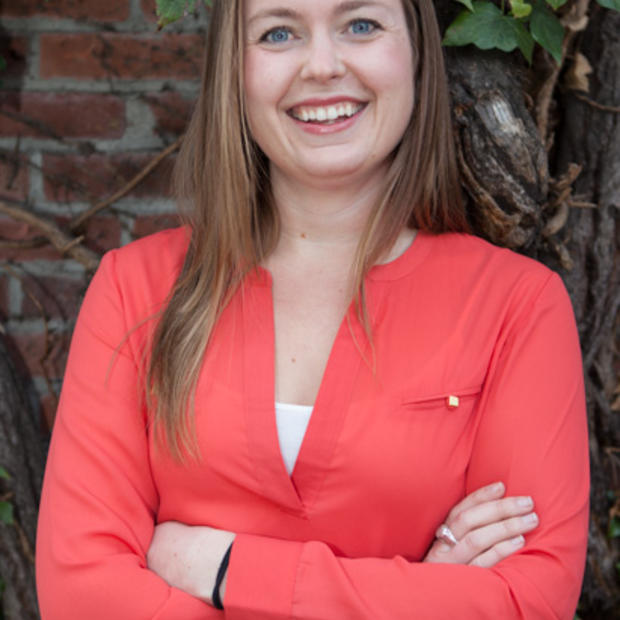Seattle is a city on the rise. A city, like San Francisco, being shaped by legions of tech newcomers — and the coming of Amazon's futuristic biodomes. That's a trend we can expect to continue, assuming Amazon sticks around, American migration follows projected climate patterns over the next 30 years, and we don't suddenly introduce big income taxes or completely defund our public university system.
Unlike San Francisco though, Seattle has a chance to be purposeful and deliberate about its tech boom; to shape the way our tech community fits into our city. We can learn how to avoid the Google bus riots and the insanely high home prices that are pushing longtime residents out of that city. That kind of disconnect between Seattle and its newest corporate citizens is not a fait accompli. There are other ways.
One model that's worked well (although not perfectly) in SF's Tenderloin neighborhood, is the community benefit agreement: In effect, companies that settle there can receive payroll tax exemptions in exchange for community outreach.
Zendesk, a customer service firm originally started in Denmark, has been touted as the most successful signatory of the agreement. In 2013, company employees volunteered in SF's Tenderloin neighborhood schools, served food at local soup kitchens, developed a tech lab for low-income neighbors and hired local caterers and restaurants for at least 40 percent of its events. In exchange, the city gave Zendesk a $217,000 break on its payroll taxes.
Zendesk makes community involvement part of its company culture, a model that draws its employees, even newbies to the city, into the emotional and cultural fabric of San Francisco.
Here in Seattle, it's a model that Microsoft pioneered, and Amazon is so far still ignoring in favor of margins. Former Mayor Mike McGinn and the Seattle City Council made noises about community benefits during the rezone of South Lake Union last year, but the affordable housing outcome of that agreement left much to be desired. Councilmember Nick Licata, the most ardent voice for more affordable housing, came out on the losing end of an agreement that will generate a mere 700 affordable neighborhood housing units in SLU, all designed for one-person households that make $45,000 or less a year.
Licata wanted to dedicate 15 percent of the new SLU development to affordable housing, which would have put us in line with, though not ahead of, San Francisco. Which is to say that, unless something changes, there's nothing stopping Seattle from careening towards a tech-driven affordable housing crisis.
Before you hit the panic button, consider that Seattle does have some significant advantages. Like New York, we are fiercely proud of our boroughs and their character: Capitol Hill, Columbia City, Georgetown, Madrona, Ballard, the rebounding Lake City and Pioneer Square. All are unique and worth fighting for. And we have the dedication to win those battles. As a metropolitan area, we are at the top of the heap in community involvement, 3rd in the country in terms of volunteering, and 6th when it comes to voting, according to a CityClub's Civic Health Index.
We are crafty and scrappy, a community of upstarts — and startups — that embraces idealism and innovation and technology. We are tastemakers and thriftshoppers, big data nerds, biotech luminaries and engineering-minded. Our LOL Cats mine asteroids and build deep ocean observatories and we change the face of global philanthropy with crazy toilets.
And we haven't even hauled out our secret weapon yet. Imagine if we could actually master the art of Northwest regionalism. If we could harness the direct, action-oriented Eastside civic style, which breeds some of the country's smartest developments, best schools and most diverse communities. If we could follow Tacoma's willingness to be both practical and openminded about transit, education and arts innovation. (Eleven of Washington's 33 most-innovative schools are based there.) The power of regionalism is there for us to wield — as soon as we get over our existing biases.
We can definitely solve this problem. Here's how.
Today Crosscut is launching its Community Idea Lab, a channel between you, and the regional governments, non-profits and other organizations tasked with solving local problems. Think of us as an incubator for all your intriguing Northwest ideas. The "what ifs" you talk about with your friends and colleagues before throwing up your hands in dismay because you'll never get the right people to look at them or take them seriously or take you seriously.
We want to take you seriously. So we'll be doing the background research on this issue over the next few months to get you thinking: What kinds of policies or programs can help us use Seattle's tech boom as an asset to create an equitable and integrated city? How can our region both attract technology companies and encourage them to get involved in the community?
Then we'll solicit your ideas and highlight them at a public event in June. There will be judges who give feedback, the audience will vote on a winner and we'll do all we can to make sure that your great ideas get the attention they deserve.
Sound like this might be up your alley? You can learn more about the Community Idea Lab here.
Crosscut's Community Idea Lab coverage is made possible by the generous support of Social Innovation Fast Pitch.


